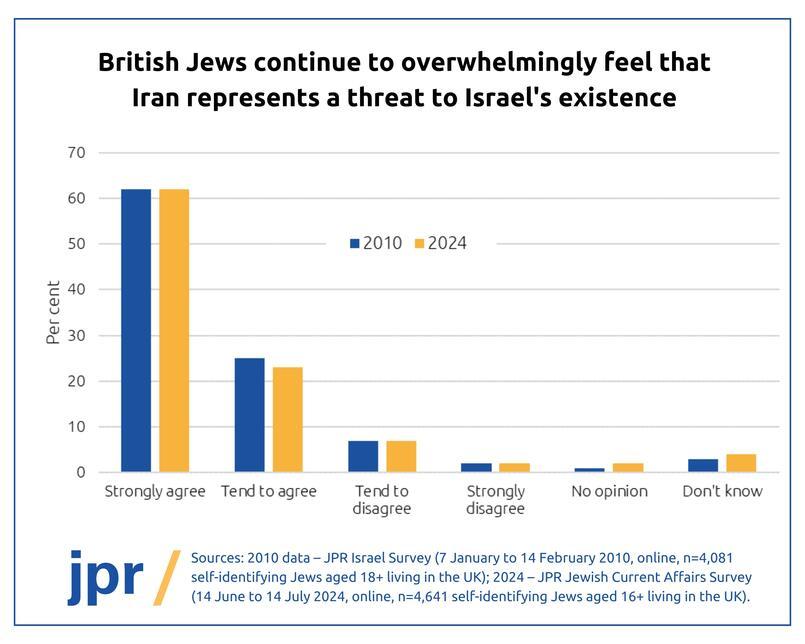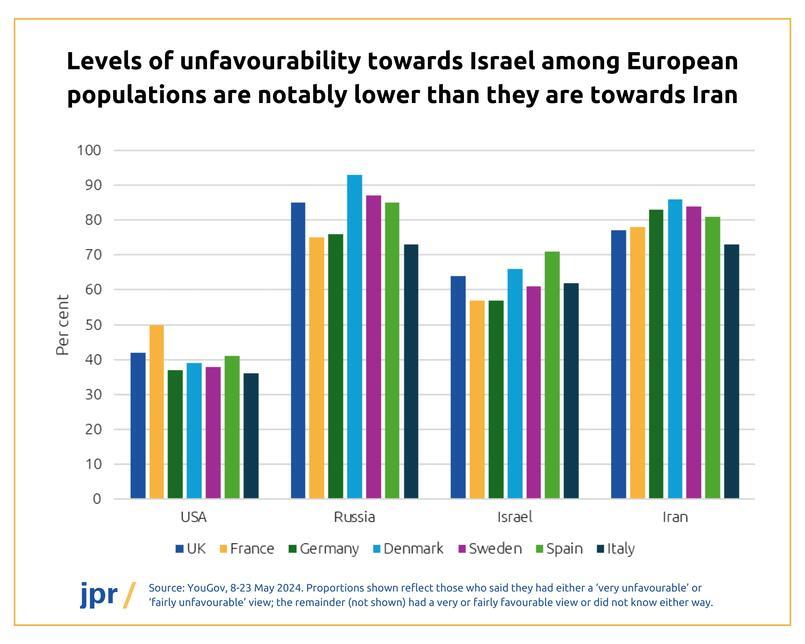British Jews have long recognised the threat to Israel’s existence posed by Iran. Little has changed in that regard over the past 15 years.
Dr Jonathan Boyd
and test your family's knowledge of Jews worldwide while reading the Haggadah!
Dr Jonathan Boyd
At the time of writing, Israelis are bracing themselves for a significant attack by Iran and its proxies. Judging by the voices I am hearing from Israel, they are doing so with a combination of bravado and trepidation – there is a fair degree of dark humour on display, but the underlying anxiety is evident.
Watching on from my vantage point in London feels deeply unsettling. I share in the anxiety-inducing wait, constantly refreshing news sources for any signs of an attack, albeit without the same sense of direct threat. I’m not there physically, but I am mentally. Yet, at the same time, the physical threat is not entirely absent. Iran and its proxy, Hezbollah, have launched attacks on Diaspora Jewish communities in the past, not least the AMIA Jewish community centre attack in Buenos Aires in July 1994, which killed 85 people and injured over 300.
When JPR conducted a major survey to examine the opinion of British Jews towards Israel in 2010, 87% agreed with the statement ‘Iran represents a threat to Israel’s existence,’ with 62% stating this strongly. Remarkably, our most recent Jewish Current Affairs Survey, conducted in June and July 2024, found nearly identical results: 85% agreed, and again, 62% did so strongly. Nothing that has occurred in the past decade-and-a-half seems to have altered British Jewish opinion in this regard – fewer than one in ten disagree with the contention, and vanishingly few do so emphatically. Moreover, very few have no opinion on the statement or don’t know what they think. The Iranian issue – a key part of the larger context in which the Israeli-Palestinian conflict sits – is salient and well-understood across the UK’s Jewish population.

Delving deeper into the data, the profile of those most likely to disagree with the view that Iran poses an existential threat to Israel is telling. The markers that stand out most strongly are people who identify as anti-Zionist and those who are ‘not at all attached’ to Israel and have become even less so since the October 7 attacks. They are also much more likely than average not to be affiliated with a Jewish community, to be politically aligned with a party other than one of the big three (Labour, Conservative or the Liberal Democrats), and to be under 30 – older people are notably more likely to see Iran as a threat.
One might argue that the majority who see Iran as an existential threat are simply archetypal Jewish pessimists – those most likely to send the fabled Jewish telegram: “Start worrying; details to follow.” Yet broader data on UK public opinion indicates a widespread sense that Iran constitutes a threat to Britain too, and indeed, a common feeling of impending doom.
Earlier this year, YouGov found that over half (53%) of Britons believe that a world war is likely in the next five to ten years, and second only to Russia, they identified Iran as the country most likely to be involved as an adversary to the UK. Indeed, only 5% think Iran would not be involved at all. Moreover, British people, and indeed Europeans in general, have an overwhelmingly unfavourable view of Iran, notably more so than of Israel. The reverse is also the case: where about one in five Britons have a favourable view of Israel, only about one in fourteen have a favourable view of Iran.

In short, the world feels like a profoundly unsettling place at the moment, not only among Jews but among many others too. But for Jews – and particularly for Israelis – the threat feels that much closer and more immediate. We are sitting waiting for an attack of unknown scale and intensity, knowing that it is imminent and that it is likely to affect many of our nearest and dearest. JPR data show that four in five of all British Jews have at least some close friends or family living in Israel.
That’s where my heart and mind are right now – with family, friends and colleagues in Israel, praying for their safety and longing for peace.